2023 Guide to the Best Online Colleges for a Master’s in Industrial and Organizational Psychology

An online master’s in industrial and organizational psychology can unlock higher salaries and many fulfilling career paths. People who earn their online masters in industrial and organizational psychology often fulfill critical roles in all kinds of private and public organizations. These days, programs at online colleges carry the same weight as in-person programs. Many schools across the country put extensive resources into their online master’s in industrial and organizational psychology programs. You’ll have to spend countless hours and thousands of dollars to earn your degree, so it’s essential to understand your career prospects and enroll in the right school. Therefore, before making any big decisions, you need to check out this guide on the best schools for an online master’s in industrial and organizational psychology.
Specializations in Industrial and Organizational Psychology Programs
Industrial psychology, organizational psychology, industrial-organizational psychology, and similar disciplines are often a concentration in a broader graduate program. For example, someone pursuing a master’s in psychology may choose to specialize in industrial psychology. Standard industrial and organizational psychology programs specializations include ergonomics, organization development, human resources, and conflict management.
Salary and Career Expectations
For someone with a bachelor’s degree in psychology or sociology, a master’s degree is often necessary to earn higher salaries. The average entry-level position for someone with a master’s degree in industrial and organizational psychology offers an annual salary of $64,000. Your location, experience, and career path will significantly affect your starting salary and long-term career prospects. The following list details some of the most common positions for professionals with a master’s degree in organizational psychology.
Personnel Psychologist
Personnel psychologists use their in-depth knowledge of workers’ wants and needs to help companies recruit the best candidates and maintain a qualified workforce. As a personnel psychologist, you will have a pivotal role in the recruitment process and provide vital input as your organization crafts and updates its employee development and evaluation programs. The average personnel psychologist in the U.S. makes slightly over $85,000 annually.
Human Resources (HR) Manager
The HR department is responsible for interviewing applicants, maintaining compliance with labor regulations, resolving disputes, training new employees, managing internal advancement, and almost everything else related to the recruitment and management of personnel in an organization. Entry-level HR management positions typically perform a narrower range of tasks in the HR department. Senior HR managers delegate tasks to other HR personnel and devise broader HR strategies. In 2021, the average HR manager made about $126,000 per year in the U.S.
Personnel Analyst

When possible, organizations typically promote current employees to fill open positions. After all, current employees understand the organization’s norms and processes better than anyone else. The organization has already put thousands of dollars and much effort into recruiting and training them. A personnel analyst’s role is to train employees for internal advancement, identify the best candidates for promotion, and make the process of internal training and improvement as efficient and beneficial to the organization as possible. Professionals in this field also help managers determine the optimal salaries and benefits for every position in the organization to motivate personnel and improve productivity. Personnel analysts typically make close to $64,000 per year.
Instructional Designer
Skilled employees are the lifeblood of any organization. With proper instructional materials and practical training standards, an organization may experience vital yet avoidable skill gaps in its workforce. In many cases, improper training can increase an organization’s liability and undermine its compliance with necessary regulations. Instructional designers develop the perfect training standards and tools to ensure that all personnel can effectively carry out their roles. People in this position have a deep understanding of human learning and know how to condense complicated information into something more digestible for the average worker. The median annual salary for instructional designers in the U.S. is a bit over $71,000.
Ergonomist
Carpal tunnel syndrome, back pain, and other conditions resulting from repeated compound motions cost society millions yearly. Ergonomists optimize employees’ workspaces and processes to prevent workplace injuries and increase workers’ long-term health. Many ergonomists work as freelance consultants, and large organizations often hire ergonomists to craft cost-effective ergonomic strategies, procure effective ergonomic furniture, conduct safety training, and make the workplace as comfortable as possible. The average ergonomist in the U.S. earns around $80,000 per year.
Research Scientist
Organizations rely on accurate data to form effective strategies and make informed decisions. However, good data doesn’t just appear out of thin air. An organization must use a suitable methodology to gain valuable data from experiments and research projects. Research scientists must understand the scientific method, research ethics, and the latest technologies to help organizations gather and analyze the correct data effectively. Many research scientists also directly participate in data collection, synthesis, and presentation. Research scientist salaries vary significantly between projects, industries, and organizations. The national average is $78,940.
Safety Inspector
Workplace accidents are bad for employees and employers alike. Not only do workplace injuries halt productivity and harm workers, but they can also result in costly lawsuits and government investigations. Safety inspectors diligently scan the workplace for all hazards and adjust the organization’s processes to ensure compliance with regulatory standards and prevent workplace injuries. In 2021, the median annual salary for safety inspectors in the U.S. was around $75,000.
Project Consultant
Consultants guide organizations on specific processes, laws, and methodologies to effectively execute new projects and strategies. As a project consultant specializing in industrial and organizational psychology, organizations may recruit you to improve their workplace ergonomics, HR processes, training materials, research methods, and other vital aspects of their operations. The average project consultant made a bit over $71,000 per year in 2022.
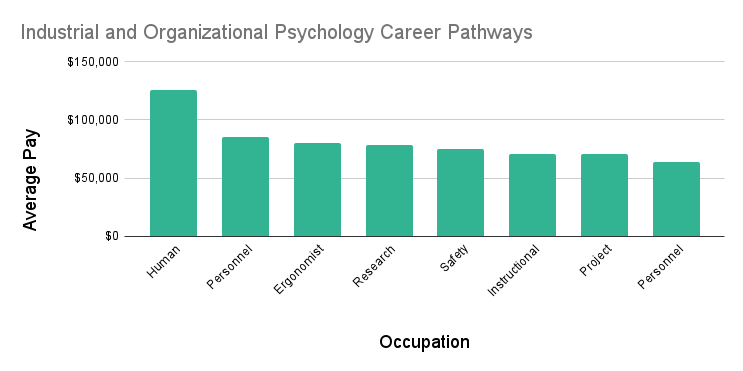
Curricula and Courses in Industrial and Organizational Psychology Programs
Coursework and curricula can vary significantly between institutions. However, most programs will start with introductory courses in applied industrial psychology, appropriate research methods, and organizational psychology. As you progress through your program, you may study applied research design, competency modeling, criterion development, measurement theory, workforce training, organizational development, leadership development, and advanced research methods. Many programs also include coursework in ethics and cross-cultural organizational psychology. You will likely have to complete a practicum, research project, or some other kind of capstone experience to earn your degree.
Admissions Standards for Online Master’s in Industrial and Organizational Psychology Programs
A High GPA
Most graduate programs in this field require a 3.0 GPA or higher. The ideal candidate will have a GPA higher than 3.5. If you do not fulfill the GPA requirement but still have a lot of experience and good GRE results, then you should still apply to the online colleges that interest you. Many institutions enroll students with lower undergraduate grades part-time or on a probationary basis. Suppose you got poor grades in undergraduate courses relevant to your graduate program. In that case, you may have to take remedial courses before you can enroll in some higher-level graduate courses.
A Relevant Bachelor’s Degree
Many online colleges require prerequisites in a specific field to get accepted into the graduate program. If your undergraduate degree is entirely unrelated to your graduate program, you may be required to take a few classes before you are eligible for admittance. When you apply, it is good to articulate the value of your bachelor’s degree and explain how your undergraduate education aligns with your career goals in the industrial and organizational psychology field. Admissions officers at online colleges will only consider candidates with a bachelor’s degree from an accredited institution.
Great GRE Results
In the field of psychology, good GRE results are paramount. The GRE will test your quantitative reasoning, verbal reasoning, and analytical writing, so you must have well-rounded academic skills to get a good score. Most applicants study for hundreds of hours in the months leading up to the GRE and only achieve average results. If you’re considering applying to any psychology-related graduate program, you should purchase the most recent study guides and prepare for the GRE immediately. The Educational Testing Service only conducts certain parts of the GRE three times per year, and the GRE fee is a bit over $200, so you need to get good results the on your first attempt if you don’t want to waste money or delay your education.
A Relevant Undergraduate Capstone Project
An undergraduate capstone project focusing on ergonomics, HR, or anything related to industrial and organizational psychology can significantly distinguish you from other candidates. An excellent undergraduate final project is critical if your grades or GRE results are lacking. Even if your undergraduate capstone project doesn’t directly relate to industrial and organizational psychology, you should be able to provide deep insight into your methods, motivations, and other aspects of the project. Program directors want candidates who can conduct effective research and experiments. Thus, you should review the details of any project that you’ve participated in and anticipate questions about your research to demonstrate competence in this vital aspect of the scientific process.
A Strong Resume or CV

Individuals with relevant skills have a considerable edge when applying to graduate programs. An interviewer may bring up any random skill or experience listed in your resume or CV, so you must have plenty to say about everything in these documents. Also, when you apply to a school, you need to pay attention to what kind of document the institution wants. If you provide a resume when the institution requests a CV, then they will likely reject you for failing to follow basic instructions. You must also format your documents correctly. While a CV should essentially be a comprehensive display of all of your skills and experience, a resume should only contain information about projects, work experience, and skills that relate to industrial and organizational psychology tangibly.
Strategic Letters of Recommendation
Many programs require multiple letters of recommendation to determine better applicants’ strengths, weaknesses, and overall character. Your letters of recommendation should come from employers, instructors, and respected industrial and organizational psychology figures. An unfavorable letter of recommendation will severely diminish your odds of acceptance, so you should only request a letter of recommendation from someone if you’re confident that they will make you look good. Most institutions will only read a letter of recommendation one page at maximum, and some online colleges have unique formatting requirements.
A Good Interview
Like in-person colleges, online colleges may want an interview with an applicant if they’re impressed with their grades, resume, and other application materials. Interviewers ask about your career goals and personal motivations for pursuing a master’s degree. They usually aren’t searching for a specific answer. Instead, they want to know that you have the passion and dedication necessary to thrive in a graduate program. Therefore, you must ensure that you prepare for such questions before your interview. Your interviewer will also take the interview as an opportunity to assess your honesty, so you should not lie about your accomplishments on your resume or other application materials.
Completion of Application Materials
Application requirements and deadlines vary drastically between institutions. Many institutions want applicants to submit unique materials and format certain documents in particular ways, so you must not take a one-size-fits-all approach when applying to graduate programs. Though it may seem obvious, proper formatting and timely submissions can mean the difference between acceptance and rejection. Complete the application materials and submit them on time to show admissions officers that you are a quality candidate.
Accreditation for Online Masters in Industrial and Organizational Psychology
The American Psychological Association (APA) is the primary accrediting body for all psychology-related graduate programs in the U.S. The Higher Learning Commission (HLC) is also a reputable accrediting body in psychology. A program lacking APA or HLC accreditation will likely not prepare you for clinical work or relevant certifications in the field. American institutions in medicine and psychology are among the best in the world, and most countries recognize master’s degrees from accredited institutions. However, you may have to pursue specific certifications or fulfill language requirements to qualify for psychology-related jobs in certain countries.
Scholarships and Financial Aid
All kinds of scholarships exist for students pursuing an online master’s in industrial and organizational psychology. Individuals often need to write thoughtful essays and fill out detailed applications to receive scholarships, and some scholarships are only available to applicants of specific ethnic or socioeconomic backgrounds. Funds can run out quickly, so you should immediately apply for any scholarship that piques your interest. A high undergraduate GPA and good GRE results will open up more opportunities for high-value scholarships.
You may have been ineligible for federal financial aid due to your parent’s income as an undergraduate. However, as a graduate student, the U.S. Department of Education will base your financial aid on your income, so you should submit your Free Application for Federal Student Aid (FAFSA) form as soon as possible. Submitting a FAFSA every academic year can save tens of thousands of dollars throughout your education. If you’ve served in the U.S. military, you may be eligible for financial aid as part of the G.I. Bill. Many hospitals, educational institutions, and other workplaces have tuition assistance programs, so you should check with your employer’s HR department to see if you’re eligible for tuition assistance or reimbursement.
What Can You Do With an Online Master’s in Industrial and Organizational Psychology?

An online master’s in industrial and organizational psychology can open many doors for ambitious graduates. Degrees in industrial and organizational psychology are prevalent in HR settings. Most medium to large organizations have HR departments, so you can find work in any field that interests you with this degree. Experts in this field tend to do a lot of freelance consulting, making an online master’s in industrial and organizational psychology an excellent choice for someone who wants to be their own boss.
How Much Does an Online Master’s in Industrial and Organizational Psychology Cost?
Costs vary between programs and institutions. Generally, master’s degrees are more expensive than bachelor’s degrees. In-state programs at public universities are usually more affordable than private institutions or public universities in other states. You can expect to pay tens of thousands of dollars without scholarships or financial aid for an online master’s degree from an accredited institution.
How Long Does an Online Masters in Industrial and Organizational Psychology Take?
Most full-time programs take between 18 and 30 months to complete. Part-time programs often take around four years to complete. Many part-time programs require a minimum number of credits per semester, so even if you’re a part-time student, a program at a good institution likely will not take more than four years.
Are There Affordable Online Masters in Industrial and Organizational Psychology Programs?
Many factors impact the affordability of an online program. If you want to pay less per year, consider attending a part-time degree program. While the overall cost is slightly higher because of annual fees, part-time enrollment can help you stay within your yearly budget. The most affordable programs in the country start a little higher than $8,000 a year in tuition for full-time students. Thus, it’s possible to achieve a high-quality master’s in industrial and organizational psychology from an online college at a very affordable rate!
Is an Online Master’s in Industrial and Organizational Psychology Worth It?
Once you make it through your graduate program, you will enjoy high salaries and flexible career options. On top of that, with an online master’s in industrial and organizational psychology, you can positively impact employees in all kinds of workplaces. Thus, industrial and organizational psychology is one of the best fields for people who want to improve the world without sacrificing financial stability. You need to think carefully about your career goals and prospects that this degree opens up to determine whether an online masters in industrial and organizational psychology is worth your time, money, and effort.
10 of the Best Online Master’s in Industrial and Organizational Psychology Programs
These schools are an excellent place to start when considering a master’s in industrial and organizational psychology. The schools are reputable, possess regional accreditation, and have quality online degree programs.
1. Austin Peay State University (Clarksville, TN)

Established in 1926, Austin Peay State University is Tennessee’s premier space grant institution. Austin Peay State University’s Master of Science in Industrial-Organizational Psychology program is fully online, takes about two years to complete, and consists of 34 credit hours. The average class in this program has only 11 students, so you will have plenty of opportunities to interact directly with your instructors.
2. Chicago School of Professional Psychology (Chicago, IL)
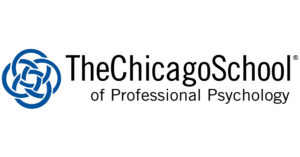
The Chicago School of Professional Psychology’s Master of Arts in Industrial and Organizational Psychology program is one of the best master’s programs in the United States. While you can earn a generalist certificate online, you must attend some in-person classes to graduate with the human resources concentration. For a final project in this program, you can choose between an applied research project, an internship, or a thesis.
3. Colorado State University (Collins, CO)
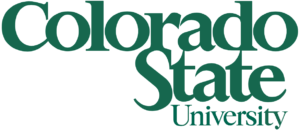
Colorado State University is known for its strong psychology programs. Its industrial and organizational psychology programs rank among the best in the world. This institution’s industrial and organizational psychology programs heavily focus on ergonomics, workplace safety, and research. Colorado State University’s Department of Psychology tailors graduate programs to each student’s interests, and all master’s degree candidates must complete a practicum to graduate. Many students move on to earn their doctorate in related psychology programs at Colorado State University.
4. Kansas State University (Manhattan, KS)

At Kansas State University, students can earn a Master of Science with an emphasis in Industrial and Organizational Psychology in a hybrid setting. The 38-credit program shapes aspiring HR professionals. It includes courses in personnel training, ethical and legal issues in professional settings, personnel selection, performance appraisal, and similar topics. Students need to attend two two-week summer sessions to fulfill the requirements for four courses. The remaining courses in this program are entirely online.
5. Missouri University of Science and Technology (Rolla, MO)
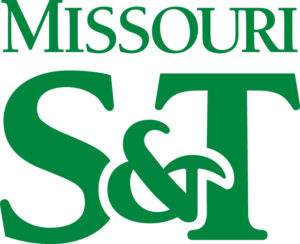
Missouri University of Science and Technology’s Master of Science in Industrial-Organizational Psychology program heavily emphasizes research. Thus, it’s a good choice for students interested in doctorate programs or research-heavy career paths. Students must complete 40 credit hours and a thesis to graduate, and most take three years to complete this program.
6. Thomas Edison University (Trenton, NJ)

Thomas Edison University’s alums enjoy favorable career prospects upon completing the online Master of Arts in Liberal Studies in Industrial-Organizational Psychology program. Coursework in this program prepares students for careers in HR and focuses on conflict management, talent promotion, and organizational ethics. The 46-credit program is entirely online and includes a capstone project.
7. Purdue University Global (West Lafayette, IN)
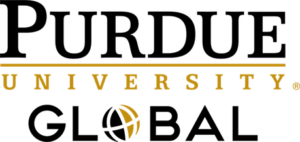
Students at Purdue University can earn a concentration in industrial-organizational psychology as part of the university’s Master of Science in Psychology program. The online program includes coursework in all aspects of psychology, and many students move on to Purdue University’s doctorate programs after earning their master’s degree. Students must complete at least 60 credits to graduate. At $420 per credit, the Master of Science in Psychology at Purdue University is among the most affordable graduate programs in the U.S.
8. Saint Peter’s University (Jersey City, NJ)

At Saint Peter’s University, students can earn a Master of Science or Master of Arts in Industrial Organizational Psychology in just 15 months. Students must complete a three-credit capstone project to earn their Master of Arts in Industrial Organizational Psychology. To achieve the Master of Science in Industrial Organizational Psychology, students must complete a six-credit thesis and successfully defend their thesis to graduate. In contrast to most universities, Saint Peter’s University’s programs consist of 11-week trimesters.
9. University of Southern California (Los Angeles, CA)

This university’s online Master of Science in Applied Psychology program combines coursework in consumer psychology and organizational psychology to maximize graduates’ career options. This unique program’s coursework covers consumer research, employee insights, project management, social media management, workplace diversity and inclusion, organizational culture, and many other topics in business and psychology. All students must complete 240 hours of fieldwork in an advisor-approved setting to fulfill the program’s experiential learning requirement.
10. University of Hartford (West Hartford, CT)
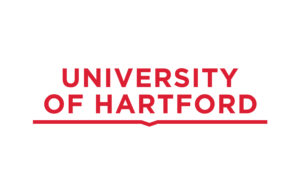
Students pursuing the University of Harford’s Master of Science in Organizational Psychology enjoy a flexible curriculum that gives them a well-rounded foundation. All courses in this 36-credit program are in an asynchronous online format. Moreover, the university offers all courses in this program year-round, making it one of the most flexible master’s programs of its kind.
Getting Your Master’s in Industrial and Organizational Psychology from an Online College
A master’s degree program is a big commitment, so you must consider your finances, future goals, availability, and other relevant factors when applying to schools. If you’re unsure about where your degree will take you, you should reach out to professionals in appropriate fields and current students at schools that interest you. No matter what school you end up choosing, an online master’s in industrial and organizational psychology will take a lot of hard work to complete, so make sure that you have the time and energy necessary to handle a challenging workload.
